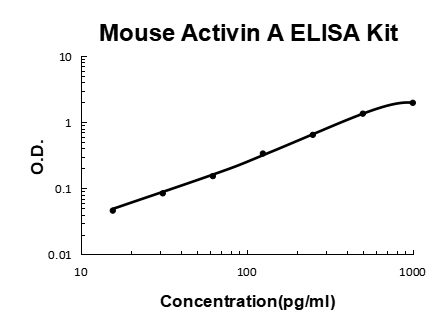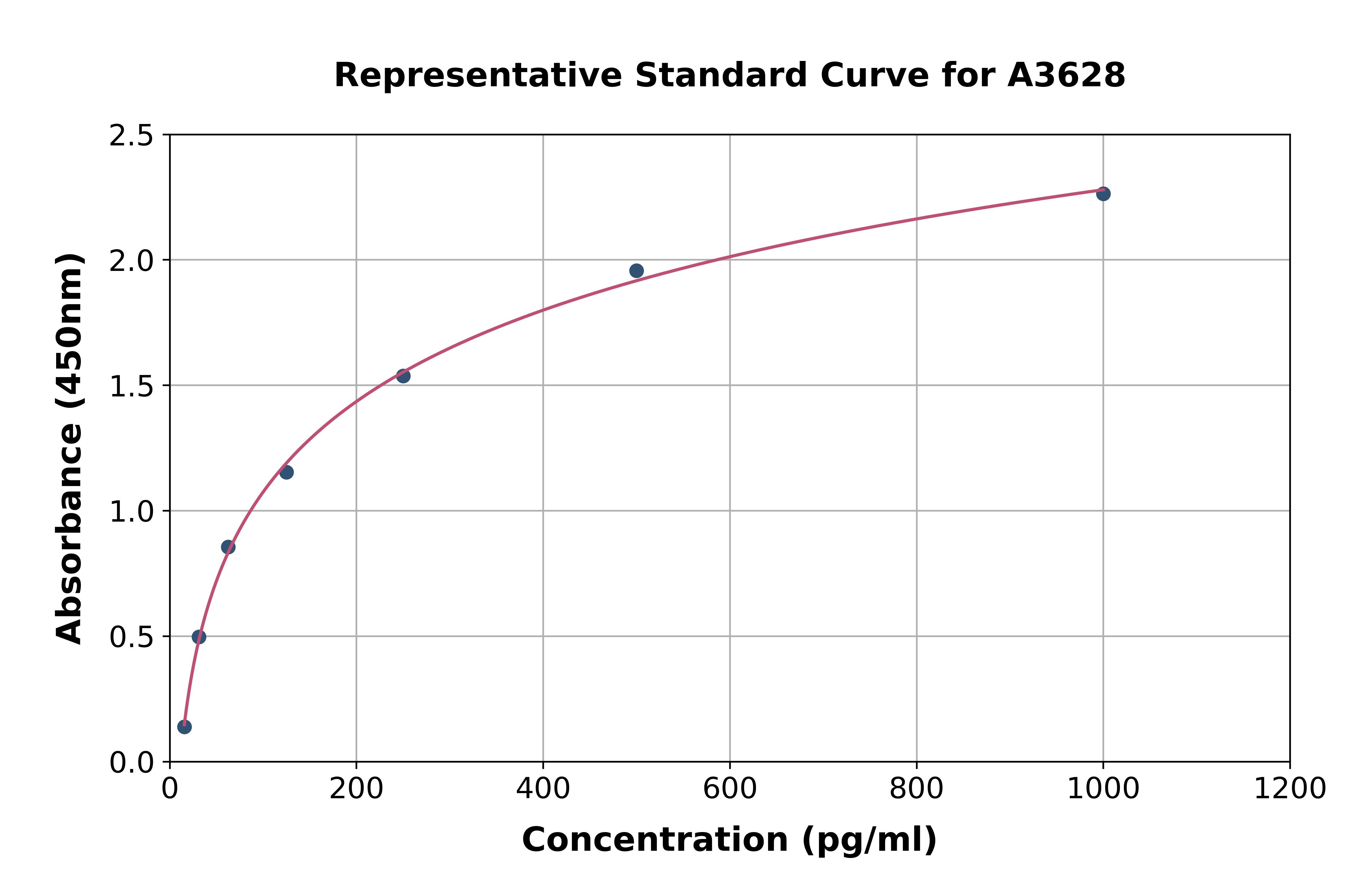
Mouse Activin A PicoKine ELISA Kit standard curve
Mouse Activin A ELISA Kit PicoKine(r)
EK0302
ReactivityBovine, Monkey, Mouse, Rabbit
Product group Assays
Overview
- SupplierBoster Bio
- Product NameMouse Activin A ELISA Kit PicoKine(r)
- Delivery Days Customer9
- ApplicationsELISA
- Applications SupplierELI
- Assay Detection Range15.6 pg/ml - 1,000 pg/ml
- Assay Sensitivity<10 pg/ml
- Assay Time20-25
- CertificationResearch Use Only
- Scientific DescriptionMouse Activin A ELISA Kit PicoKine® (96 Tests). Quantitate Mouse Inhba in cell culture supernatants, serum, plasma (heparin, EDTA) and saliva. Sensitivity: 10pg/ml. The brand Picokine indicates this is a premium quality ELISA kit. Each Picokine kit delivers precise quantification, high sensitivity, and excellent reproducibility. Only our most reliable and effective kits qualify as Picokine, guaranteeing top-tier results for your assays.
- ReactivityBovine, Monkey, Mouse, Rabbit
- Reactivity SupplierMouse Activin A
- Storage Instruction-20°C,2°C to 8°C
- UNSPSC41116158
References
- He L, Wang X, Cheng D, et al. Ginsenoside Rg1 improves pathological damages by activating the p21‑p53‑STK pathway in ovary and Bax‑Bcl2 in the uterus in premature ovarian insufficiency mouse models. Mol Med Rep. 2021,23(1):pii: 37. doi: 10.3892/mmr.2020.11675.Read this paper
- Wu Y, Wang L, Meng L, et al. Biological effects of autophagy in mice with sepsis-induced acute kidney injury. Exp Ther Med. 2019,17(1):316-322. doi: 10.3892/etm.2018.6899Read this paper
- Cai S , Yang H , Wen B , et al. Inhibition by microbial metabolites of Chinese dark tea of age-related neurodegenerative disorders in senescence-accelerated mouse prone 8 (SAMP8) mice. Food Funct. 2018,9(10):5455-5462. doi: 10.1039/c8fo01512kRead this paper
- Zhang H, Ju B, Nie Y, et al. Adenovirus‑mediated knockdown of activin A receptor type 2A attenuates immune‑induced hepatic fibrosis in mice and inhibits interleukin‑17‑induced activation of primary hepatic stellate cells. Int J Mol Med. 2018,42(1):279-289. doi: 10.3892/ijmm.2018.3600Read this paper
- Zhang H, Ju B, Zhang X, et al. Magnolol Attenuates Concanavalin A-induced Hepatic Fibrosis, Inhibits CD4(+) T Helper 17 (Th17) Cell Differentiation and Suppresses Hepatic Stellate Cell Activation: Blockade of Smad3/Smad4 Signalling. Basic Clin Pharmacol Toxicol. 2017,120(6):560-570. doi: 10.1111/bcpt.12749Read this paper
- Liu X, Nie S, Huang D, et al. Effects of nonylphenol exposure on expression of cell receptors and secretory function in mouse Sertoli TM4 cells. Environ Toxicol Pharmacol. 2014,37(2):608-16. doi: 10.1016/j.etap.2014.01.017Read this paper
- Dieelberg C, Ribes S, Michel U, et al. Follistatin does not influence the course of Escherichia coli K1 sepsis in a mouse model. Shock. 2012,38(6):615-9. doi: 10.1097/SHK.0b013e3182748d96Read this paper






